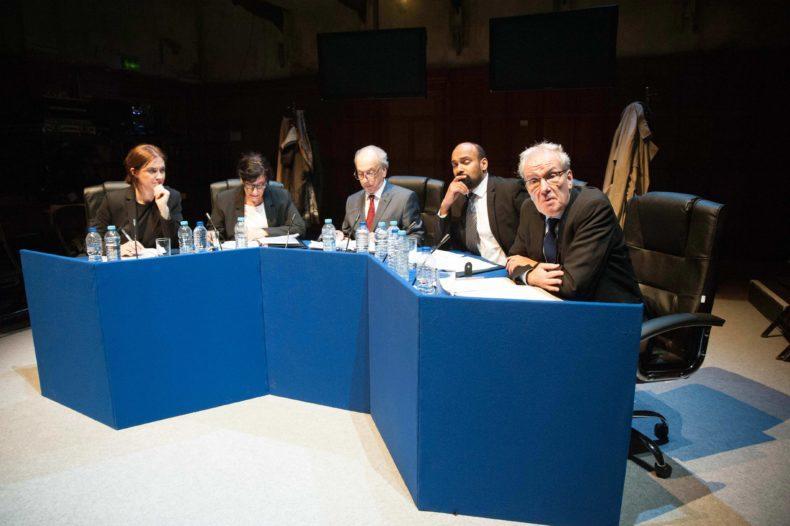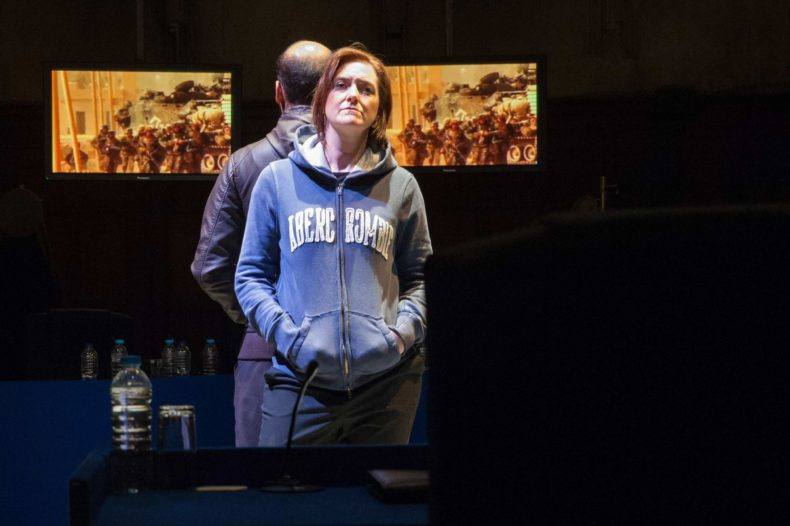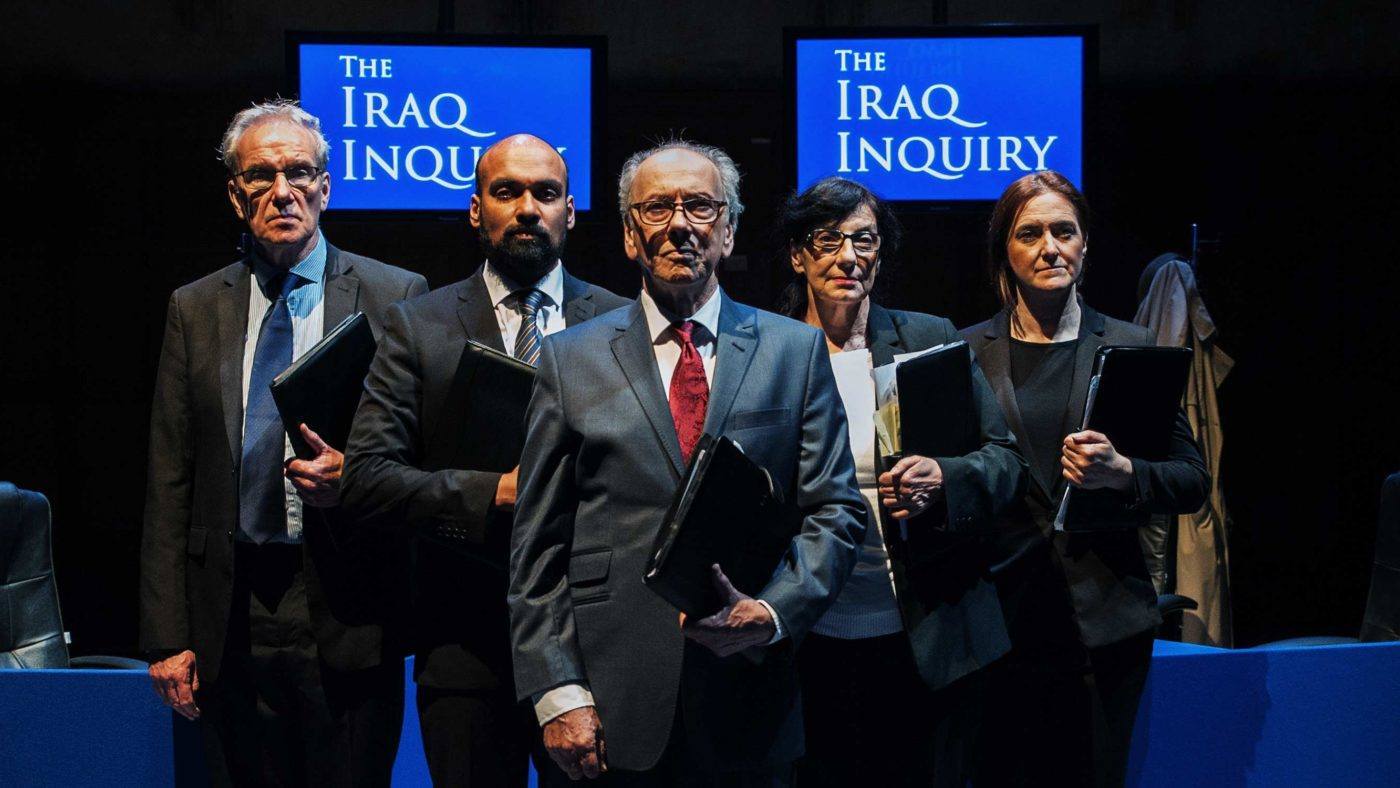Seven years after being commissioned, with 150 witnesses heard, over 150,000 documents scrutinised, and more than ten million pounds spent, the Iraq Inquiry will finally be released on July 6th this year. The long-awaited report on Britain’s role in the Iraq War is set to tell a devastating tale of astonishing incompetence.
‘Chilcot’ the play, appearing at the Battersea Arts Centre after its premiere at The Lowry in Salford, is extremely timely. Co-created by Guardian journalist Richard Norton-Taylor and Matt Woodhead, key testimonies from the inquiry have been edited and compiled together into a piece of verbatim documentary-theatre, alongside accounts from veterans, family members of fallen troops, and Iraqis. Stating in the programme that the war was “the biggest foreign policy disaster in modern times”, the creators make no mistake of the picture they want to paint.
The Chilcot interviews are brought to life effectively by a talented ensemble cast of six. As we expect to see from the report, the evidence shows a severe lack of planning, large doubts as to the legality of the invasion, and a policy driven by a small inner circle within Blair’s government. Senior government lawyer Sir Michael Wood’s testimony is particularly striking. Upon telling Foreign Secretary Jack Straw that the “UK cannot lawfully use force against Iraq”, Straw rejected his advice, explaining that “international law was pretty vague”.

Photo by Joe Twigg
Despite having to play several different roles, often disregarding their gender or ethnicity, the actors slip into each character with consummate ease. Helped by the traverse stage, with the panelists on one side and witness on the other, their interactions feel natural, and largely true to the tone of the enquiry hearings. The cagey, stuttering responses of Tony Blair and Jack Straw contrast effectively with Alastair Campbell’s self-assurance, and the frank, honest criticisms by civil servants and officials.
The play’s strongest moments, though, come from testimonies outside Chilcot, portraying the human effect of the war. Sanchia McCormack’s portrayal of Rose Gentle, mother of Fusilier Gordon Gentle, is tremendously moving. Just after seeing Defence Secretary Geoff Hoon grilled over lack of sufficient equipment, we hear about her 19-year-old son killed in a Snatch Land Rover because its armour – 800 yards away in a store room – had not been fitted. The emotional stories and Chilcot interviews are interwoven cleverly, using videos from the time alongside dissonant sound recordings to set each scene.

Photo by Joe Twigg
Inevitably, days of testimony edited into just two hours can never tell the whole story, and the evidence does feel cherry-picked to create the clearest possible narrative. Unfortunately, that narrative is identical to the public’s conventional wisdom on Iraq. The play, therefore, struggles to tell us anything we didn’t already know, and unlike a highly-charged court room drama, there is nothing obviously at stake for the people being interrogated. No matter how interesting the subject matter, these elements undermine the tension of each scene.
As a timely reminder of the damning evidence given during the Iraq inquiry, and the war’s human impact, ‘Chilcot’ has achieved its intentions. Now we must wait until July 6th to see the real drama unfold.
Chilcot is on at the Battersea Arts Centre until 10 June.


